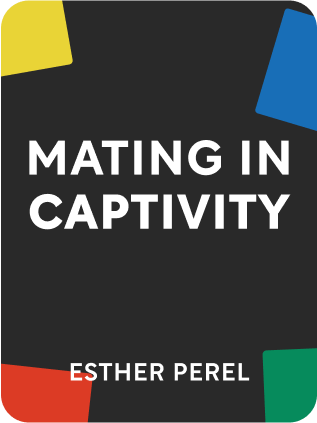

This article is an excerpt from the Shortform book guide to "Mating in Captivity" by Esther Perel. Shortform has the world's best summaries and analyses of books you should be reading.
Like this article? Sign up for a free trial here .
Is it common to fantasize about violent sex? What do violent sexual fantasies tell us about ourselves?
Sexual fantasies are a natural, healthy part of adult sexuality. And it’s not actually uncommon to fantasize about sexual aggression. Yet, we feel like there’s something wrong with us for coming up with (and enjoying) these scenarios.
Here is what aggressive sexual fantasies tell us about ourselves, according to couples therapist Esther Perel.
Sexual Fantasy: The Gateway to Your Inner World
Sexual fantasies express truths about ourselves and reveal what we want, but not in the way most people think they do—they’re more symbolic than literal. Regular, non-sexual fantasies have a simple connection between fantasy and reality. If you daydream about buying a new car, you probably want a new car.
But sexual fantasies have a more complicated connection—the whole point of a sexual fantasy is that it’s pretend. It’s probably never going to be real, and there’s a good chance you don’t want it to be. Fantasies tend to be irrational (like eroticism in general) and are often very different from our values and behavior in real life. If most people fantasized about getting flowers from their lover, fantasies probably wouldn’t have such a bad reputation. Instead, people have fantasies that are at odds with their self-image and/or moral compass. Faithful people think about sleeping with the babysitter; feminists are dominated.
Aggression and Sexual Fantasy
According to couples therapist Esther Perel, sexual desire fundamentally thrives on obsession, aggression, objectification, and dominance.
It’s actually not uncommon for women to fantasize about sexual aggression. Sexually aggressive women don’t fit into cultural norms, so much so that sometimes women can only express their aggression in their imaginations—and even then, sometimes only vicariously. An invented man in a fantasy can be a woman’s stand-in for her own aggression if she’s not comfortable imagining herself being aggressive. There’s obviously some tension here—real sexual abuse happens, and it’s horrible. But in violent sexual fantasies, the assault isn’t real, and it’s usually nonviolent.
According to Perel, sexual fantasies are a way of restraining the potentially dangerous feelings inherent in eroticism (aggression, jealousy, and so on) to a safe place. Fantasy takes a conflict (for example, fear of our own aggression) and gives us a solution. While we wouldn’t apply the fantasy solution in real life, working through conflict in our heads can have a healing quality and help us manage difficult emotions in real life.
Should You Share?
Sharing fantasies can be a turn on, but it can also make them less powerful as aphrodisiacs, or at worst result in devastating judgement. Perel doesn’t think it’s necessary to share our fantasies if we don’t want to.
If you do want to share, you need to be sensitive and tactful. Certain fantasies, especially those that involve violence or power imbalances, might frighten or offend your partner. Even if the fantasy isn’t that intimate, sharing it can be an intimate experience.

———End of Preview———
Like what you just read? Read the rest of the world's best book summary and analysis of Esther Perel's "Mating in Captivity" at Shortform .
Here's what you'll find in our full Mating in Captivity summary :
- Why it's difficult to have a good, erotic life within a long-term relationship
- What makes up our individual sense of desire and our desire for our partners
- Tips on how to retain desire in a committed relationship






